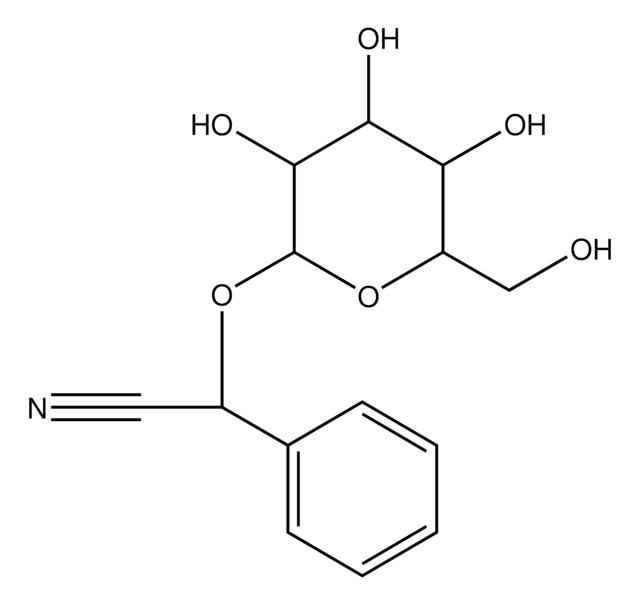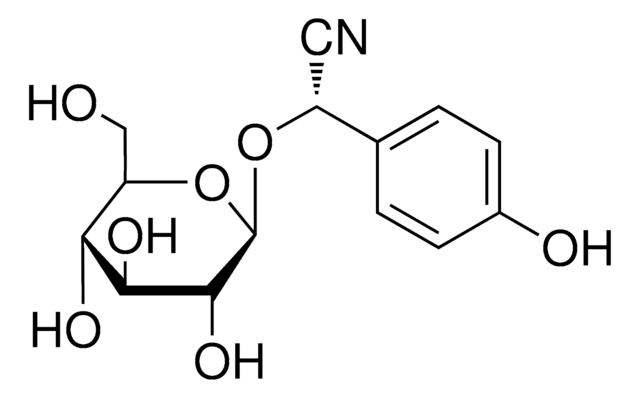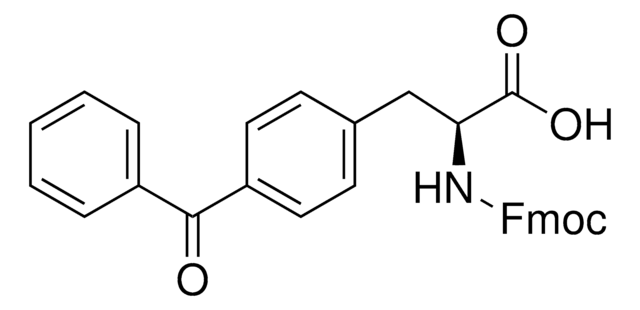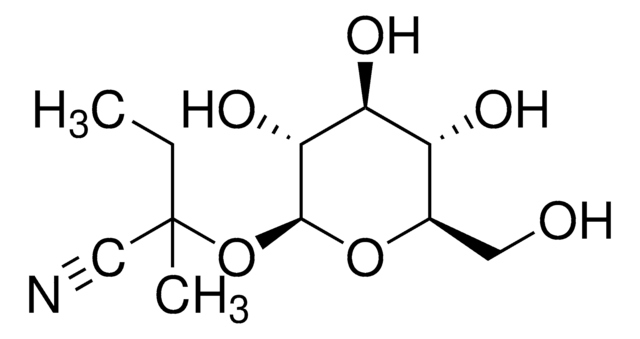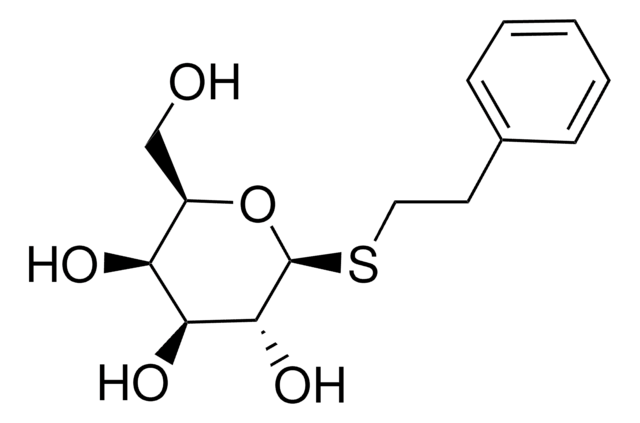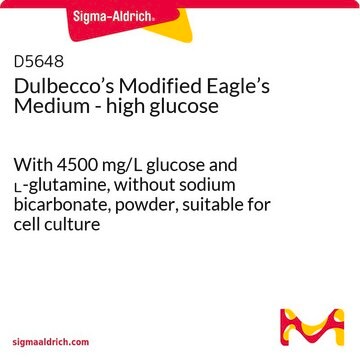10050
Amygdalin
BioXtra, ≥97.0% (HPLC)
Synonym(s):
D-Mandelonitrile 6-O-β-D-glucosido-β-D-glucoside, D-Mandelonitrile-β-gentiobioside, Amygdaloside, Laetrile
About This Item
Recommended Products
biological source
synthetic
Quality Level
product line
BioXtra
Assay
≥97.0% (HPLC)
form
powder
optical activity
[α]20/D −39±2°, c = 2% in H2O
technique(s)
HPLC: suitable
loss
≤7.5% loss on drying, 110 °C
color
white to off-white
solubility
H2O: 0.1 g/mL, clear to very faintly turbid, colorless (hot)
anion traces
chloride (Cl-): ≤50 mg/kg
sulfate (SO42-): ≤300 mg/kg
cation traces
Ca: ≤30 mg/kg
Cd: ≤5 mg/kg
Co: ≤5 mg/kg
Cr: ≤5 mg/kg
Cu: ≤5 mg/kg
Fe: ≤5 mg/kg
K: ≤300 mg/kg
Mg: ≤5 mg/kg
Mn: ≤5 mg/kg
Na: ≤50 mg/kg
Ni: ≤5 mg/kg
Pb: ≤5 mg/kg
Zn: ≤5 mg/kg
SMILES string
OC[C@H]1O[C@@H](OC[C@H]2O[C@@H](OC(C#N)c3ccccc3)[C@H](O)[C@@H](O)[C@@H]2O)[C@H](O)[C@@H](O)[C@@H]1O
InChI
1S/C20H27NO11/c21-6-10(9-4-2-1-3-5-9)30-20-18(28)16(26)14(24)12(32-20)8-29-19-17(27)15(25)13(23)11(7-22)31-19/h1-5,10-20,22-28H,7-8H2/t10?,11-,12-,13-,14-,15+,16+,17-,18-,19-,20-/m1/s1
InChI key
XUCIJNAGGSZNQT-SWRVSKMJSA-N
Looking for similar products? Visit Product Comparison Guide
Application
Biochem/physiol Actions
Other Notes
Signal Word
Warning
Hazard Statements
Precautionary Statements
Hazard Classifications
Acute Tox. 4 Oral
Storage Class Code
11 - Combustible Solids
WGK
WGK 3
Personal Protective Equipment
Choose from one of the most recent versions:
Already Own This Product?
Find documentation for the products that you have recently purchased in the Document Library.
Customers Also Viewed
Our team of scientists has experience in all areas of research including Life Science, Material Science, Chemical Synthesis, Chromatography, Analytical and many others.
Contact Technical Service
